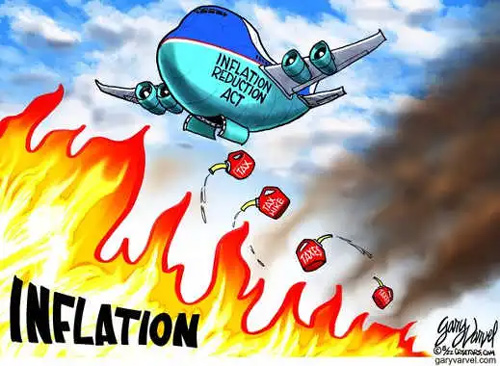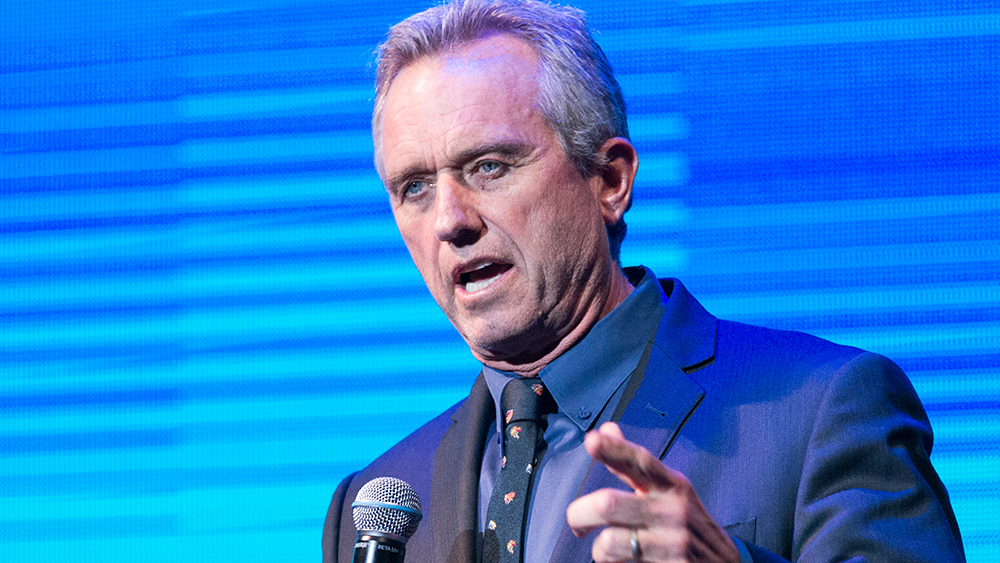Worsenining commercial real estate market woes could spark a new banking crisis
02/21/2024 / By Cassie B.

Worries are growing that the U.S. commercial real estate market’s current woes could lead to another banking crisis.
This year, around $929 billion in outstanding commercial mortgages will mature, the Mortgage Bankers Association reports. This is a staggering amount that equates to 20 percent of the $4.7 trillion outstanding debt overall. But with higher interest rates taking a huge toll on property values in the sector and many businesses relying less on office buildings as remote and hybrid work become more popular, the stage is set for a disaster.
The National Bureau of Economic Research reports that 44 percent of office loans and 14 percent of all commercial real estate loans are currently underwater, which means their values are less than the amount still owed on the loans. Defaults could well end up being distressingly high as a result.
Columbia Business School Professor Tomasz Piskorski, who co-authored the National Bureau of Economic Research’s working paper, told the Daily Mail: “If nothing changes – if interest rates remain elevated and property values do not improve — we do view defaults at the rate of the Great Recession, and in fact even higher, as quite a possibility.”
He added that there are hundreds of banks currently on the verge of insolvency as a result of the high interest rates, and they are vulnerable to runs by depositors. For example, should the default rates on commercial real estate loans hit 10 percent – something experts believe is very likely – more than 200 American banks with aggregate assets totaling $1 trillion could see the market value of their assets dip below the value of customer deposits, which could lead to a bank run like the one that caused Silicon Valley Bank to collapse last year as customers panic and pull their uninsured deposits.
According to Piskorski, smaller and mid-sized banks are at particular risk, especially those that have considerable shares of uninsured deposits and significant commercial real estate loan portfolios.
Most commercial real estate loans are interest-only, which means they operate differently from residential mortgages in which borrowers pay down the principal over time. When a commercial real estate loan matures, it must either be refinanced or fully paid off. However, many of the outstanding commercial real estate loans that are maturing this year were issued when interest rates were significantly lower. This means that many borrowers won’t be able to pay higher interest payments, and it will be harder to find a bank that is willing to refinance the property even if it isn’t underwater.
Commercial real estate problems could spill over into broader financial system
If the situation in the commercial real estate sector gets worse, it could spur problems in the financial system at large, with the commercial real estate market being considered one of the main financial risks to the American economy at the moment.
A recent report by the Financial Stability Oversight Council cautioned: “As losses from a CRE loan portfolio accumulate, they can spill over into the broader financial system.”
The regulator noted that there could be a “downward CRE valuation spiral” wherein a slew of sales of financially distressed properties floods the market, which would drive down the market values of all properties in the area, sending other commercial mortgages underwater and pushing default rates up even further. In some cases, local municipalities could see their property tax revenues drop significantly.
Last month, the office vacancy rate in America rose to 19.6 percent, which is the highest since Moody’s started keeping records in 1979. This could affect sectors like urban retail as fewer people need to travel to work, along with multifamily housing as people no longer need to live close to their office, sending shockwaves throughout the economy.
Sources for this article include:
Submit a correction >>
Tagged Under:
bank run, banking, banking crisis, Bubble, Collapse, commercial real estate, debt bomb, debt collapse, dollar demise, economic collapse, economic riot, finance riot, inflation, insolvency, investments, market crash, money supply, pensions, Real Estate, risk
This article may contain statements that reflect the opinion of the author
RECENT NEWS & ARTICLES
COPYRIGHT © 2018 MONEYSUPPLY.NEWS
All content posted on this site is protected under Free Speech. MoneySupply.news is not responsible for content written by contributing authors. The information on this site is provided for educational and entertainment purposes only. It is not intended as a substitute for professional advice of any kind. MoneySupply.news assumes no responsibility for the use or misuse of this material. All trademarks, registered trademarks and service marks mentioned on this site are the property of their respective owners.




















